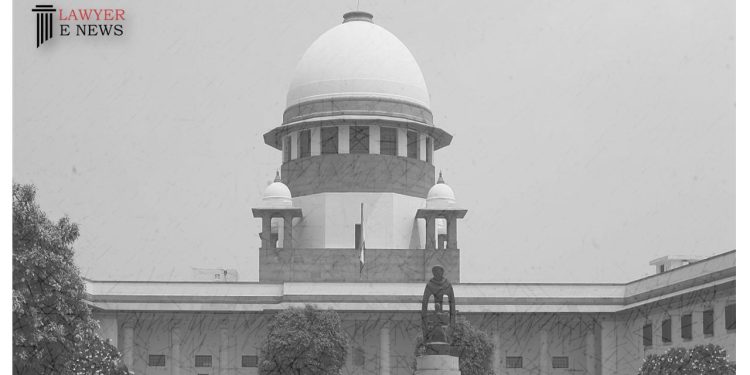Lack of Reliable Eyewitness Testimony Leads to acquittal of Accused – SC

On 12 April 2023, Supreme Court in a recent Judgement (Radhey Shyam & Ors. Vs. State of Rajasthan) held that the identity of the accused as the assailants of the deceased had not been established beyond a reasonable doubt, and the conviction could not be sustained based solely on the alleged recovery of weapons.
Facts
The case involves three convicted accused (numbers 9, 2, and 1) who were charged with Section 148 and Section 302 r/w Section 149 of the Indian Penal Code (IPC). The incident happened on April 16, 1976, and there was political rivalry between the deceased’s family and some accused persons who belonged to the Ahir community and formed a party called Azad party. The deceased’s brother lodged an FIR, and according to the prosecution, three witnesses were present during the attack. The Trial Court discarded one witness’s testimony but believed the testimony of two witnesses, including the mother and daughter of the deceased. The High Court upheld the conviction of the accused.
Arguments
The counsel for the appellants argued that the testimony of the child witness (PW3) cannot be reliable, given her age, and pointed out that there were discrepancies in her identification of the accused. The counsel also noted that PW4 could not identify any of the accused in court. They suggested that the delay in filing the FIR allowed for the possibility of false implication of the accused due to political rivalry.
The senior counsel for the state argued that despite minor discrepancies, the child witness demonstrated good intelligence and understanding. He pointed out that PW4 named five persons as the accused but was unable to identify them by name. The senior counsel argued that such lapses in identification can be attributed to the lapse of time between the incident and the trial. The senior counsel for the state maintained that the conclusions reached by the lower courts regarding the guilt of the appellants were sound.
Observed and Held
The Supreme Court observed that the prosecution’s case rested solely on the testimony of two witnesses, including a child witness (PW3). While the Court acknowledged that the age of the child witness did not automatically disqualify her testimony, they emphasized that greater caution and scrutiny were necessary. The Court scrutinized her testimony and found that there were inconsistencies in her identification of the accused and that the identification procedure used was unfair to the accused. The Court found that it was unsafe to convict the accused based only on the testimony of the child witness.
The Supreme Court observed that the testimony of the other witness, PW4 Kanwarbai, who claimed to be an eyewitness, was also unreliable. Despite claiming to know the names of the accused and their fathers, she was unable to identify any of them in court. The Court noted that her identification attempts were inconsistent and did not inspire confidence. The Court further found that it was unsafe to convict the accused based on the testimony of either witness, particularly given the inconsistencies and contradictions in their identifications of the accused.
The Supreme Court held that the identity of the accused as the assailants of the deceased had not been established beyond a reasonable doubt, and the conviction could not be sustained based solely on the alleged recovery of weapons. The court quashed and set aside the conviction of the appellants and acquitted them of the charges. Appeal Allowed.
Radhey Shyam & Ors. Vs. State of Rajasthan





